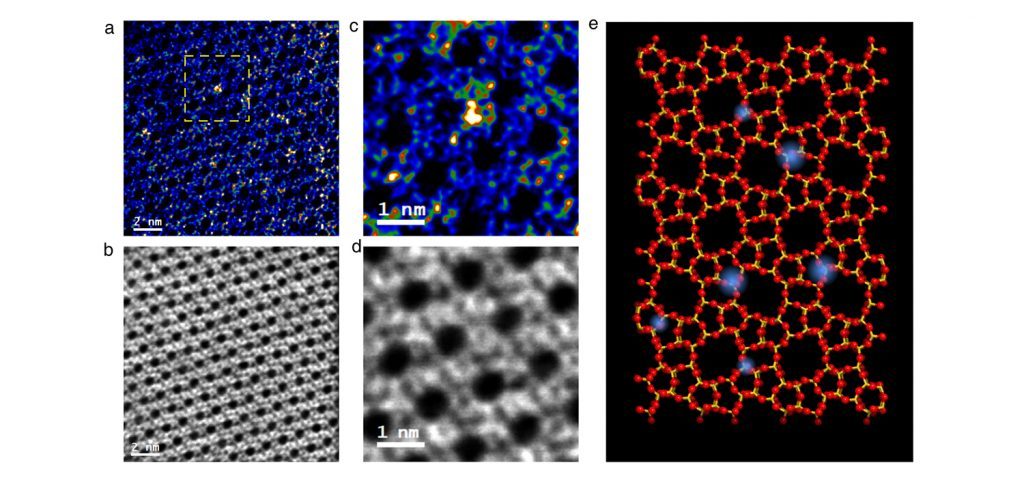IMEYMAT researchers develop a new strategy for catalyst stabilization thanks to atomic resolution 15 July 2019
IMEYMAT researchers, integrated in the group (FQM-334) Structure and Chemistry of nanomaterials led by Professor José Juan Calvino, have been able to identify with high precision the location of platinum clusters within the pores of zeolites, as well as modulate their reactivity, which has been crucial in the development of a new strategy for stabilization of catalysts based on porous crystalline materials.
This important work, published in the journal Nature Materials, has as its first UCA author the researcher Miguel López Haro, from the Department of Materials Science and Metallurgical Engineering and Inorganic Chemistry, and has taken as its starting point the fact that metallic species, such as platinum, on a subnanometric scale have unique properties but with a clear limitation in high-temperature catalytic applications. For this reason, work has been done to control the generation and location of zeolite groups of this metal, since the latter can serve as a support to stabilize the catalysts.
This research has been carried out over the last year, in which several innovative methodologies of atomic scale analysis of ultradispersal metal clusters in the zeolite matrix have been developed. Using one of the most recent techniques (iDPC) in the field of Electron Microscopy – which was installed only 12 months ago in the FEI Titan Themis 60-300 microscope of the UCA -, these scientists have managed to locate subnanometric metallic species at specific sites and modulate their reactivity, reaching catalysts with very high stability, selectivity and activity for the dehydrogenation of propane.
The results obtained have been possible thanks to two elements: the human factor and the important scientific facilities of the University of Cadiz. As far as the human factor is concerned, the University of Cadiz has a school of electron microscopists with contrasted experience at the highest level and of an international dimension. With respect to the role of the scientific facilities of the University of Cadiz, it is important to point out that the FEI Titan Themis 60-300 microscope, which makes possible such specific experiments, something that can only be done at a national level from the DME-UCA.
Access the article ‘Regioselective generation and reactivity control of subnanometric platinum clusters in zeolites for high-temperature catalysis’ for more information.


